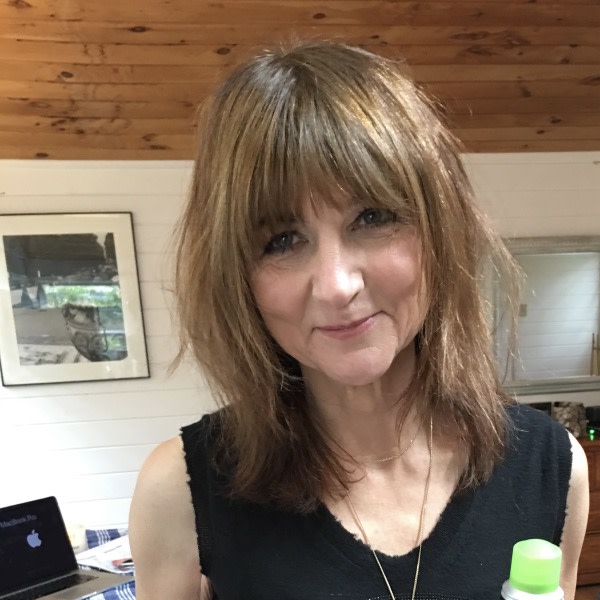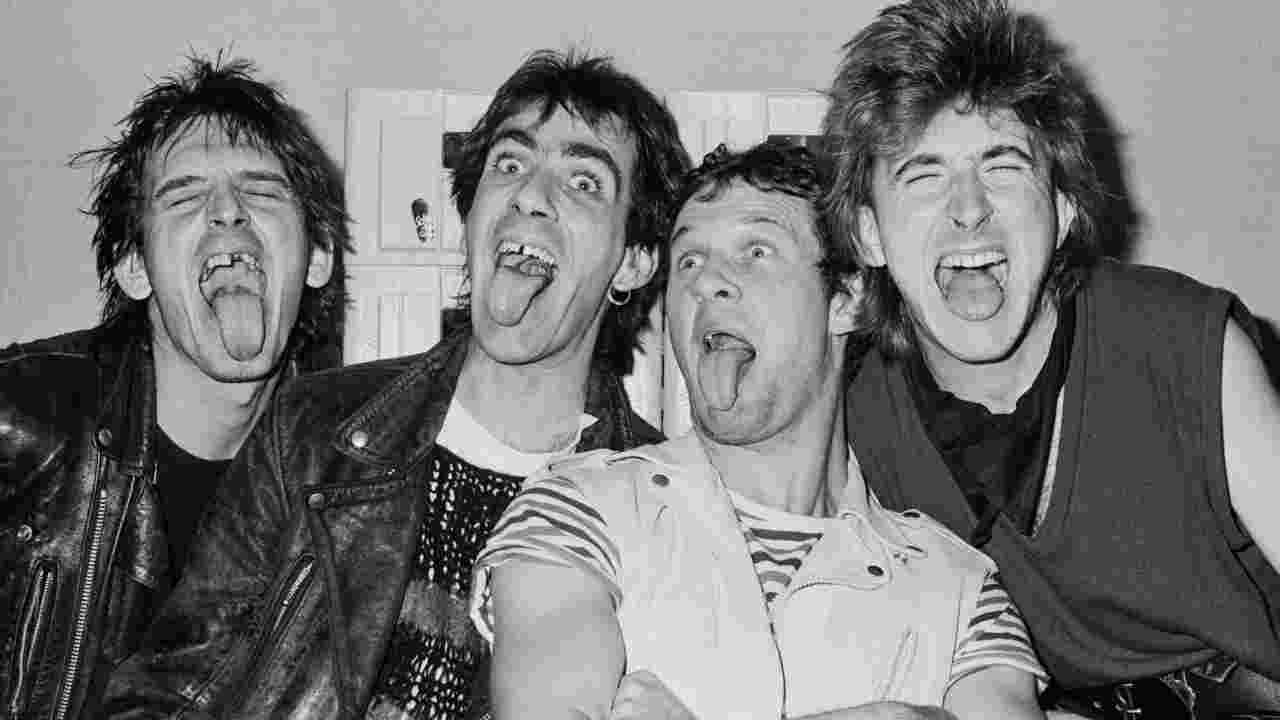Bonnie Raitt: Lady Talks The Blues
Twenty albums, 10 Grammys and three comebacks in, Bonnie Raitt could be taking it easy. But the blues megastar still has a lot to do and say.
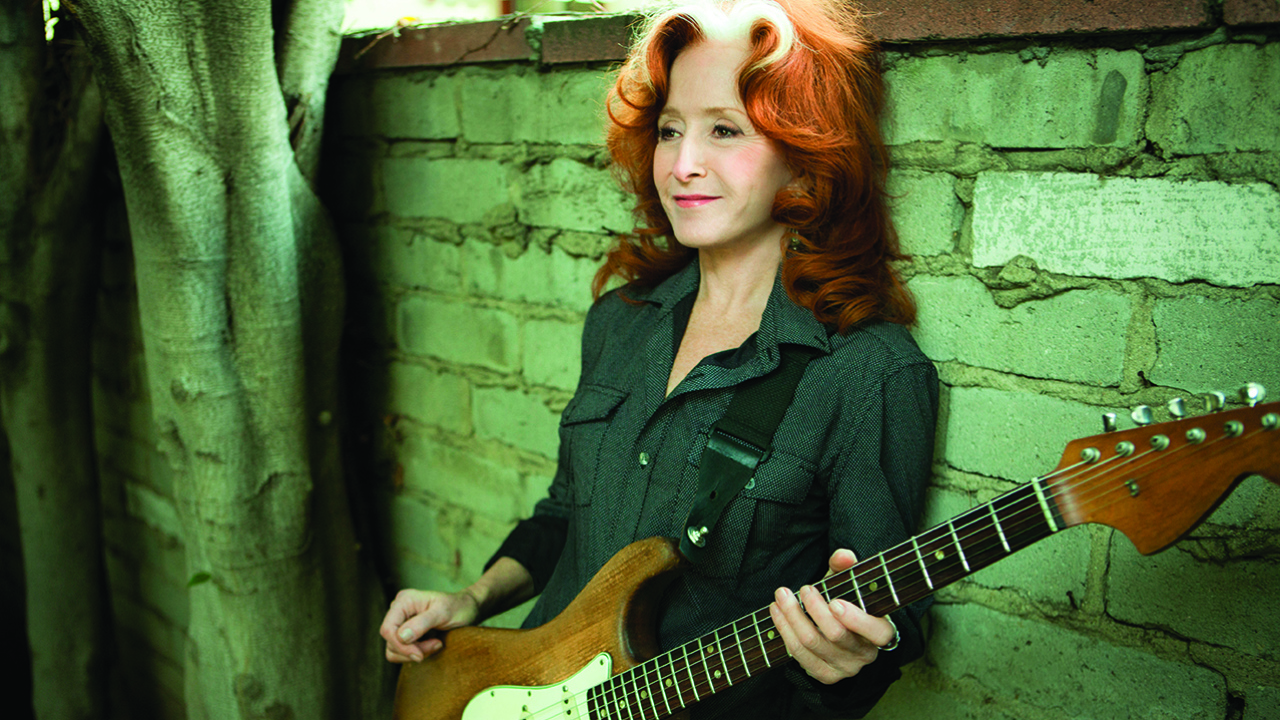
It’s two weeks before Christmas. But, in the sleek modern lobby of the Hotel Amarano in Burbank, California, you would be hard-pressed to know that. It’s like sitting in the middle of a very large marshmallow; everything is a quiet study of a sanitarium white, from the ivory marble tiles to the linen couches, the champagne-beige rugs to the cream-coloured lampshades. Even the floor-to-ceiling-bookshelves are filled with tomes that have all been covered in white leather, with none of the titles showing. It’s a metaphor that is as disturbing as it is a bland diet for the eyes. Worse, the Christmas tree is done up in monochromatic beige that absorbs more light than it reflects.
It is a hushed and quiescent place, with an almost inaudible soundtrack of unobtrusive jazz playing in the background, conveying, as the hotel’s general manager brags, “a place where a five-time Oscar winner can walk in the door and no one’s going to ask for an autograph”. Given that only cinematographers, make-up artists, dress designers, visual effects supervisors, the late Walt Disney and composer Allen Menken (who won eight) generally reach those multi-Oscar heights, that doesn’t seem like a tall order.
But that’s not even true. Once, I spotted someone march right up to basketball bad boy Dennis Rodman and ask him to sign his coat. Then there was the time that Julia Roberts threw open the French doors of her second-storey room and screamed down at the hotel’s gardener to stop using the electric leaf blower because she couldn’t hear herself think. It’s more like a place where Oscar winners come to recover after having facial surgery.
But not Bonnie Raitt. The seemingly ageless musician sweeps into this austere lobby in a riot of colour and feverish activity, wrapped up in a winter coat against the December chill, her trademark red hair swathed in a long cashmere scarf the shade of the storm clouds outside and which exactly matches the blue-grey liner that rims her watchful eyes.
Raitt looks more like that elegant and tough-talking old-school Hollywood actress of yore Barbara Stanwyck at about the time she made the classic Double Indemnity than like a legacy artist who is one of the world’s most steadfast sustainers of the blues tradition and the best slide guitar player of her generation – making it on to Rolling Stone’s lists of both the top 100 guitarists and top 100 singers. But really, Raitt looks like nobody so much as herself – that is, when she’s properly made up.
“Oh my god, I just did my eyeliner in the car,” Raitt laughs, sitting at a small table in the hotel’s tiny bar and rummaging in her purse for a small bottle of vanilla Stevia. “I never wear eye make-up in real life because people don’t recognise me if I don’t have it on. If I’m drawing my eyes, I must be going back to work.”
Which she is. She’s just come from finishing up some last-minute chores. She’s closing her Redwing Records for the holidays later today, and there are still cards to send, packages to wrap, tour dates to finalise, and a performance with her old friend Jackson Browne for the Plastic Pollution Coalition. Right after she’s finished here she’s off to meet her long-time stylist for a fitting of the stage clothes for her upcoming world tour, which will run at least through 2017. Which means a lot of outfits, most of which – you guessed it – Raitt designs herself.
Sign up below to get the latest from Classic Rock, plus exclusive special offers, direct to your inbox!
“I’ve designed my shirts since I was twenty-one, and piece them together. I take the sleeves from this shirt I like and a collar from that, and then I custom-make it to my body, and we pick new fabrics and have different things. So it’s really creative. As is designing a set and working with somebody that’s doing that. So there’s a lot of things that harken back to producing a Broadway show or a movie. There’s a lot of things that I have my fingers involved in, as creative to me as the music part.”
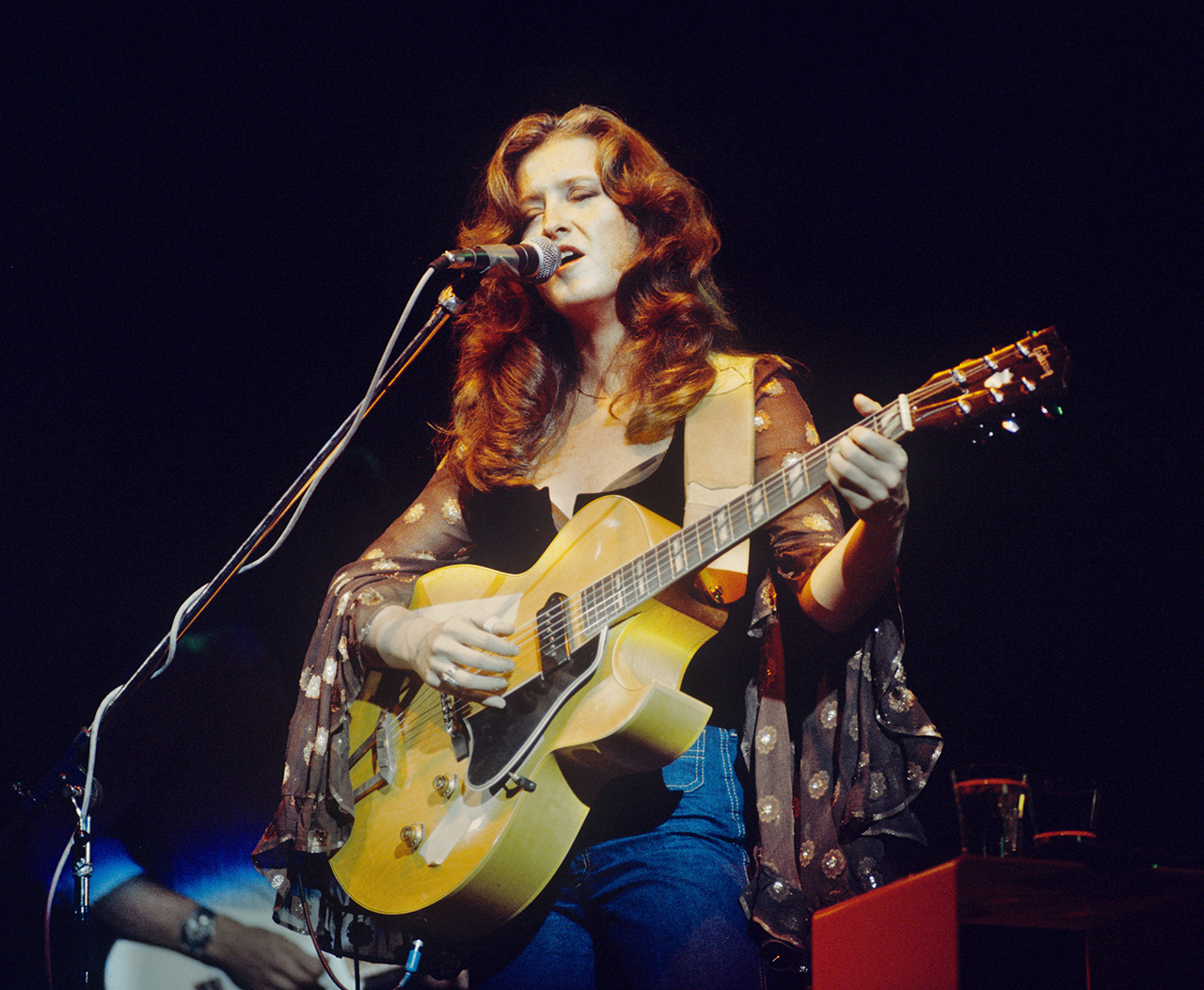
As well as being a label head, the fingers in every pie extend to producing and writing nearly half the songs on her new album, Dig In Deep, released on February 26. She produced everything except for one track: You’ve Changed My Mind, written by Joe Henry, a friend and the producer of her previous album, Slipstream, after a conversation the two of them had. That rather qualifies as a co-write in itself, so it wouldn’t be wrong to add it to the five songs she wrote on the 12-song album, the most since 1998’s Fundamental. And the subject matter is similar to Fundamental’s: navigating that sometimes mysterious terrain that exists between men and women. It’s not exactly new territory for Raitt.
“Well, a lot of music is writing about what goes on between men and women,” she tells me. “I’ve written other songs like this. What do you do in relationships where you are bumping up against each other? How do you get back to what you had? I’d forgotten till after I wrote these. But there’s one on Fundamental that I wrote called Meet Me Halfway, and on Sweet Forgiveness there’s Standing By The Same Old Love. There’s been a lot of times when I’m talking to the person that I’m with and I’ve said: ‘Hey, man, let’s pay attention. We’re gonna lose it.’ And there’s another one, called Baby, I’m On Your Side, that’s also on Fundamental, that’s about how we lost the thread here. Now let’s get it back.”
On Dig In Deep, Raitt shows you how. Over the 12 songs, she unsentimentally helps to solve that age-old mystery that has stumped philosophers, sages and big thinkers since time began: what do you do to make love last? To echo Yoda, in this epoch of Star Wars resurgence: “Do. Or do not. There is no ‘try’.” Raitt’s advice on The Unintended Consequence Of Love is the same: ‘Let’s dig in deep and get out of this rut.’ No therapists. No recriminations. Just put in the effort and save what is worth saving.
Raitt is one of the very few artists who goes out of her way to help you solve your problems. Urban artists, rap stars and MCs let things get personal and specific on their songs, but very few rock artists really have the courage or wherewithal to share the experience of their hard-won romantic conflagrations, or dispense advice the way she does. But then Bonnie Raitt did name her publishing company Open Secret Music.
Do the lessons come from her own life?
“Well, The Ones We Couldn’t Be is very autobiographical,” she says. “Ironically the Joe Henry song [You’ve Changed My Mind] is too. Maybe not about this relationship, but Unintended Consequences is absolutely from my own experiences. I’ve been in that situation in many of my relationships. What You’re Doing To Me is this point in time when you think your heart’s shuttered, and then somebody pulls you out again. You’ve Changed My Mind and What You’re Doing To Me also are about being yanked back out from the brink of giving up and back into the sun.”
Raitt is nothing if not direct, never coy; emotionally honest, without pretense as both a person and an artist. It’s those qualities that illuminate the songs she writes or chooses to cover. But with a difference: the kind of songs that appear on Dig In Deep are the kind you can’t write or sing until you’ve lived them. They needed the life behind them in order to be born; the scars, the lessons, the deep knowledge from coming out the other side of something. Behind them is a maturity, an intelligence and, most of all, a knowing that you can hear in her thoughtful phrasing and common-sense solutions to not-always-common problems. Conversations set to music, really.
And on the whole they’re unsentimental in their sparse pragmatism, except perhaps on The Ones We Couldn’t Be, which has the poetry and regret of an Irish lament. Is it about the end of her marriage? Perhaps. If not that, it’s certainly about one of those relationships that leave a deep mark, and an even deeper lesson about one’s capacity to be true to oneself.
Which is probably the most telling thing about Raitt’s 20th album. She is resolutely herself. No Don Was to put a shine on her lyrics. No Mitchell Froom and Tchad Blake to gloss up the instrumentation. No Joe Henry to bring out the best in Raitt. Here she stands alone. And the music is better for it.
So what is the key to making an album? “Timing,” she says simply, sitting up a little straighter in her seat. She is smaller and more delicately built than you might think from her photographs, with a posture that seems to speak to her inner fortitude and judiciousness – or maybe the result of her five-days-a-week yoga practice. She and a friend do it together by Skype or FaceTime, depending where Raitt is.
“I mean that in big and small ways. Sometimes it’s just your time. Or as Elvis Costello calls it: ‘It’s your time on the wheel.’ There’s a spin, and other people have to come up, and then you’re up next. If Nick Of Time [her three-Grammy-winning ‘comeback’ album, released in 1989] had come out in ninety-six it wouldn’t have been a hit. It was just my time. And with [2012’s] Slipstream, I think I’d had a lot of loss and I just was rejuvenated, so there was a really strong batch of songs, because I had extra time to write them. Which is one of the reasons Nick Of Time was better than some of my other stuff, because I had all that time from eighty-six to eighty-nine to find great songs. And, you know, if you race into the studio you might have fewer great songs.”
Dig In Deep had a four-year gestation period, which is about the average time for Raitt to give birth to an album, given the two years she spent on the road touring Slipstream.
“I know it’s time to make a record when I have eleven or twelve songs,” she says. “Making an album is like building a set. There’s a certain arc to sequencing a show, and there’s a certain arc to sequencing a record, and you get good at it early on or else you make crummy records.”
Not a natural writer, Raitt says she writes when she realises something is missing in her set. “Writing is not something I do naturally, but when I have something I really want to play, like certain grooves that I realise I’m missing in my show, I’ll have to write it. First I’ll look for a perfect song that’s in that feel, but if I don’t find it I gotta write it. I only really write on assignment. I don’t sit around and worry about it. Or think, I hope everybody’ll think I’m cool if I write more. It’s hard, and every single time I wonder if I can do it. George [Marinelli, Raitt’s long-time guitarist] sent the music to If You Need Somebody, and I realised I had to write words for it. But I found that once I started going it was definitely a pull, not a push. I can’t say that it’s going to happen every time like that.’’
What remains consistent is the way Raitt writes; idiosyncratic bordering on the miraculous. “I like to write lyrics out in nature. I like to go somewhere else to write the lyrics, so I won’t get too distracted – because it’s really easy for me to do,” she says, laughing. “A lot of the music, I write in my head, I don’t play the instrument. In fact I didn’t play some of these songs till I got in the studio, and then I did it in one take, like with The Ones We Couldn’t Be.”
Or the rough-and-ready Coming Round Is Going Through, a song that would have felt right at home in a Mark Knopfler set. Fast-paced and raw with a buzzy guitar and a seditious whine, it’s one of the rare Raitt songs that deal overtly with the political situation. Usually she is much more subtle about her leanings, allowing the organisations she supports to set up tables at her shows and donating a portion of every ticket sale. Even though she’s a founding member of MUSE (Musicians United for Safe Energy), who produced the historic concerts, album and film No Nukes in 1979, she rarely lets such leanings creep into her music.
“I usually don’t write political songs, but I’m so angry about democracy getting hijacked by big money and the lack of reform. And I wrote it knowing that not everybody that comes to see me or listen to my records has the same progressive kind of view that I do. But at this point everybody in this country is disgusted with how few people are getting a too big a piece of the pie. [I don’t have] the answer for why that is or who’s to blame or how to fix it, but I just wanted to do a rock’n’roll stomper that would allow me to express how pissed off I am. The last time I did something like that is when I wrote Spit Of Love, when I was at the end of a relationship and just seething. That song feels exactly like what I’m singing about. There are certain songs that are just so hellaciously infectious for me.”
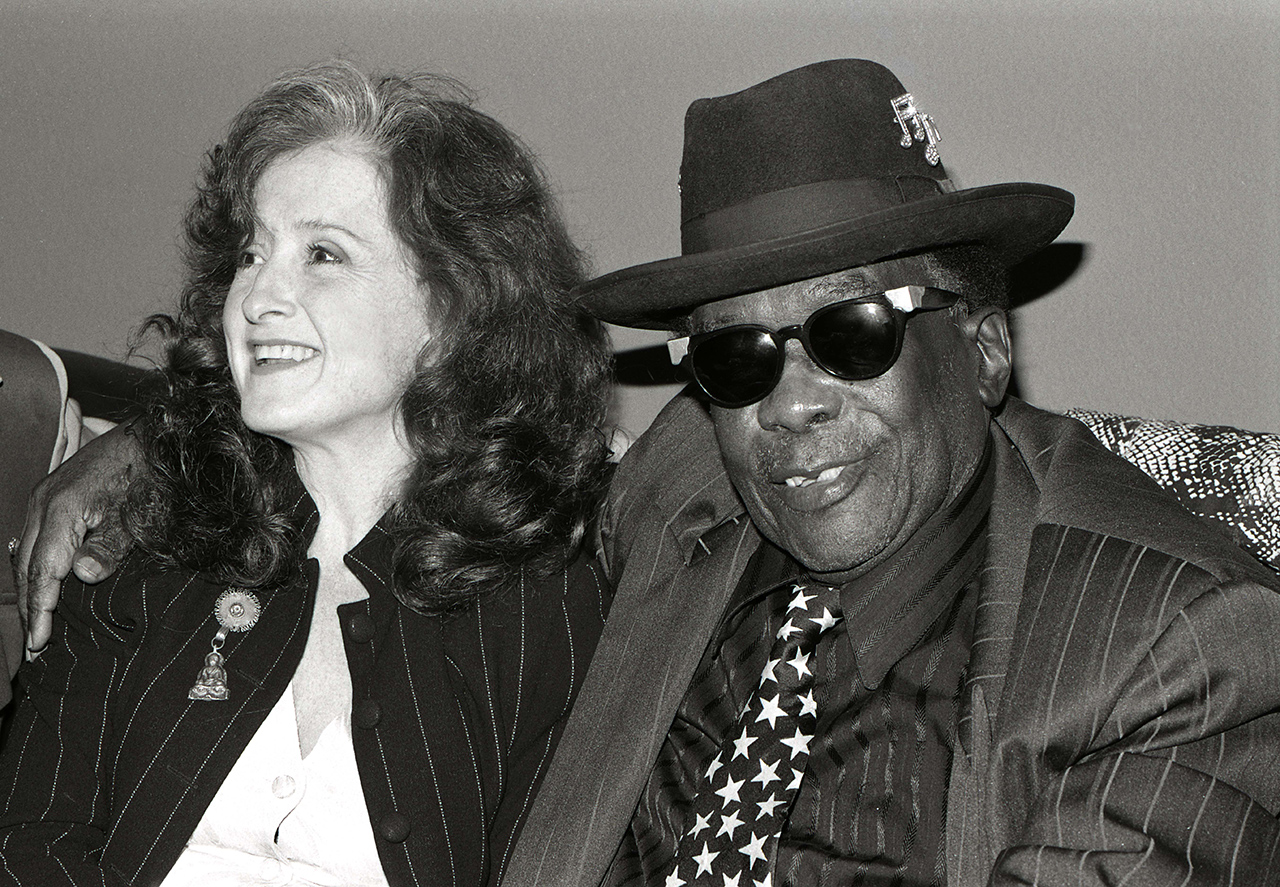
But no matter how strong her writing is, Raitt just can’t envision the day when she writes everything on one of her albums. “Honestly, I would never do a whole album of my own songs even if I had them, because I like mixing and matching. I would never write anything like the Los Lobos/T Bone Burnett song [Shakin’ Shakin’ Shakes]. There are certain songs that are in my wheelhouse, and other ones I need to go outside it for. Besides, it’s fun to reinterpret tunes that were done originally either by men or have a whole different feel. Then I’ve got my own thing, and there’s a certain originality in that, if you can use that word. There’s a certain artistry in reframing a song in a different way. That’s why it was really fun to do Gerry Rafferty’s Right Down The Line [on Slipstream] as a reggae song.”
There is little that is more revealing about artists than the songs they cover. It’s akin to Halloween, when the costume you choose says volumes about how you see yourself. For example, Raitt’s cover of INXS’s 1987 No.1 hit Need You Tonight. That’s on a par with Patti Smith doing the Tears For Fears anthem Everybody Wants To Rule The World on her Twelve album.
“I knew that would throw everybody for a loop. I’ve been wanting to cut Need You Tonight since it came out. I just wanted to be able to stop and say: ‘You’re one of my kind.’ It’s just a very, very sexy song.”
Especially for a 66-year-old. But Raitt is a role model for how to age in this business. Or maybe that you don’t have to. Her father, Broadway star John Raitt, kept working long past when most people retire. “As he got older he did the older roles. So he stayed out there. And then did concerts till he was in his mid-eighties. He was a normal guy,” she says with affection.
“My heroes are Ella Fitzgerald and BB King, Tony Bennett, my dad and John Lee Hooker. As a blues and roots artist I have the luxury of being able to age with esteem and respect if I keep my chops together and keep growing artistically. If I just become a human-jukebox caricature of myself, then it’ll be an oldies show, and I’ll still work, but it won’t be… well, anything I could do. I will retire before I do that. So I love playing, but I don’t want to play the same songs all the time.”
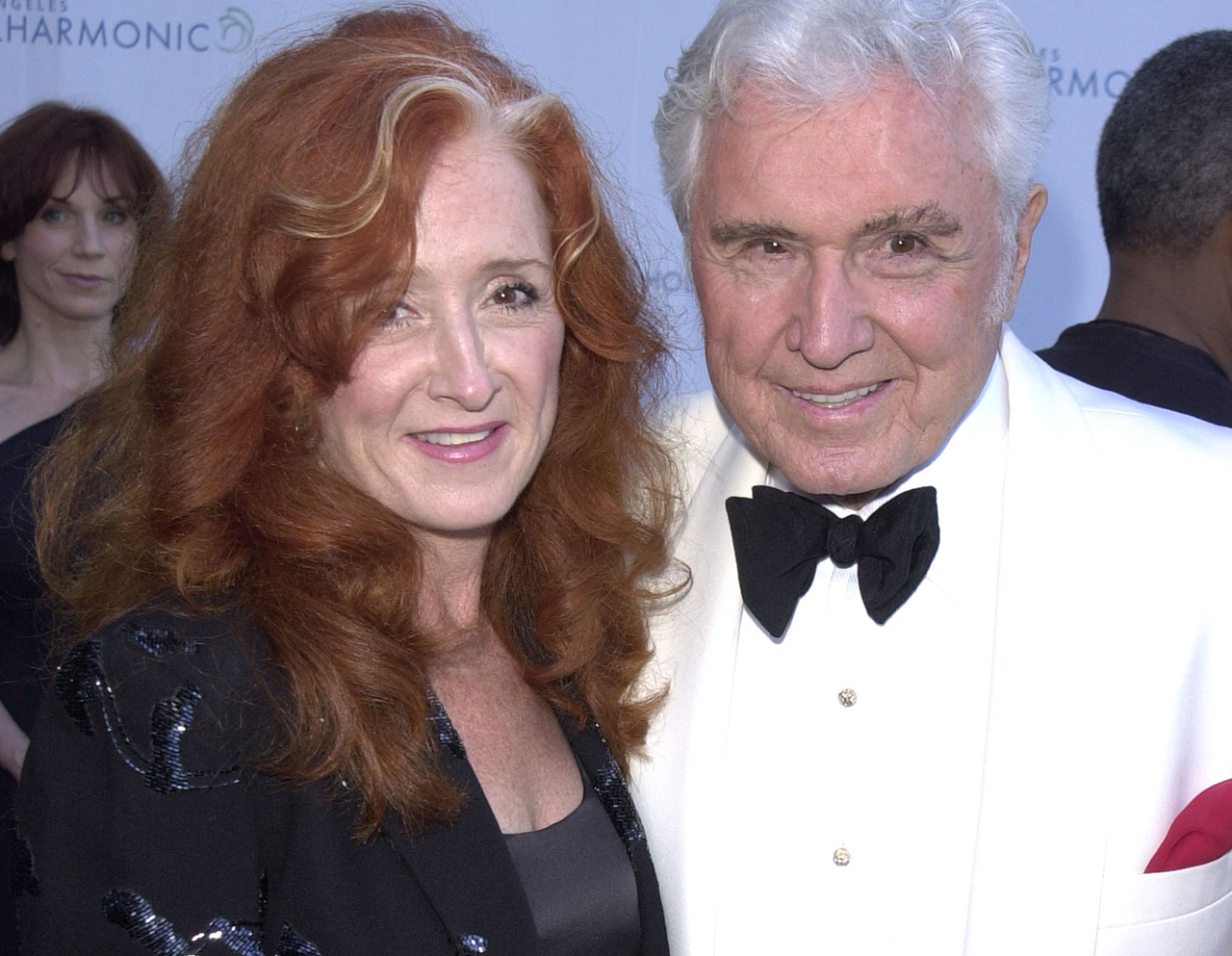
There doesn’t seem to be any chance of Raitt repeating herself. Her need to expand her horizons and do different kinds of material is what led former Village Voice reviewer Robert Christgau to say, when reviewing her 1995 live album Road Tested: “[This] two-CD mix of old songs and new illustrates why Raitt became an icon while Ronstadt turned into a gargoyle.”
So much of an icon, in fact, that over her career she has had, by her own account, three “comebacks”. But that shouldn’t surprise anyone who noticed that her 1986 album was titled Nine Lives. What is more telling is that in 2012 she won her 10th Grammy, for Slipstream.
Was that Grammy more satisfying because it showed that you were indeed getting better as you got older? That you still had it?
“Oh, I was so glad when the record got reviewed the way it did. The same way I was for Nick Of Time. I wasn’t expecting to get a Grammy. It’s wonderful to be nominated. And I know it sounds like a cliché, but it’s really true. But I don’t gauge my self-esteem by whether I have a hit record or whether I win awards. The tenth Grammy was totally unexpected for Album Of The Year. But it’s similar to Nick Of Time. I was already so happy with the response of the record, and it was already selling really well. So by the time I got a Grammy nomination I was knocked out. And I was hoping those younger bands weren’t resentful that an old warhorse got it. Because, really, I have enough Grammys. I don’t need any more.”
What do you need?
“The love of my close friends. I think they think I’m kind and generous, and they love me in spite of some of my other tendencies. Sometimes I can be a know-it-all or cranky – and we all can – but they love me. True friends love you in spite of those things, and they understand when you’re having a rough day. So I think we all feel about the same of each other.”
There are few who are as generally loved in the musicians’ community as Bonnie Raitt. Along with Jackson Browne and Stevie Wonder, she sang Amazing Grace at Stevie Ray Vaughan’s funeral in Dallas. Eric Clapton once asked her to play the guitar solo in Cream’s Sunshine Of Your Love at one of his Crossroads events. She is even more loved by the blues community, having helped resurrect the careers of Sippie Wallace and Charles Brown. But above all others, there was a special corner in John Lee Hooker’s heart for the red-headed she-wolf guitarist. He recalled: “I knew Bonnie when she was playing around Boston and places like that. I knew that she was gonna really be a big star one day. She’s got no ego. She’s down to earth. She loves the blues and she loves old blues singers.”
“Oh, he was such a great guy,” Raitt says, smiling at the thought of the bluesman, who died in 2001. “Very impish behind those badass glasses. I loved the way he would giggle and hold his mouth over his teeth, which a lot of people do who are self-conscious about their teeth.
“You asked what I needed. Mostly it’s to continue doing what I do. The thing that has contributed to my longevity is my absolute love of what I do. I don’t want to do something else. I love and I live to do this. A lot of people and causes depend on me for their support. But honestly, as much as that’s important, it’s so much fun and so rewarding to get to do this, and such a miracle that I can, that I’m still here and having people come and see me, that I just want every show and every record to be the best possible I could do. I got it from my dad. He said every night is opening night. All it takes is one bad show and they won’t come and see you again, because you will have lost it. I am grateful I never have.”
One of the first women to work in rock journalism, Jaan Uhelszki got her start alongside Lester Bangs, Ben Edmonds and Dave Marsh — considered the “dream team” of rock writing at Creem Magazine in the mid-1970s. Currently an Editor at Large at Relix, Uhelszki has published articles in NME, Mojo, Rolling Stone, USA Today, Classic Rock, Uncut and the San Francisco Chronicle. Her awards include Online Journalist of the Year and the National Feature Writer Award from the Music Journalist’s Association, and three Deems Taylor Awards. She is listed in Flavorwire’s 33 Women Music Critics You Need to Read and holds the dubious honour of being the only rock journalist who has ever performed in full costume and makeup with Kiss.
